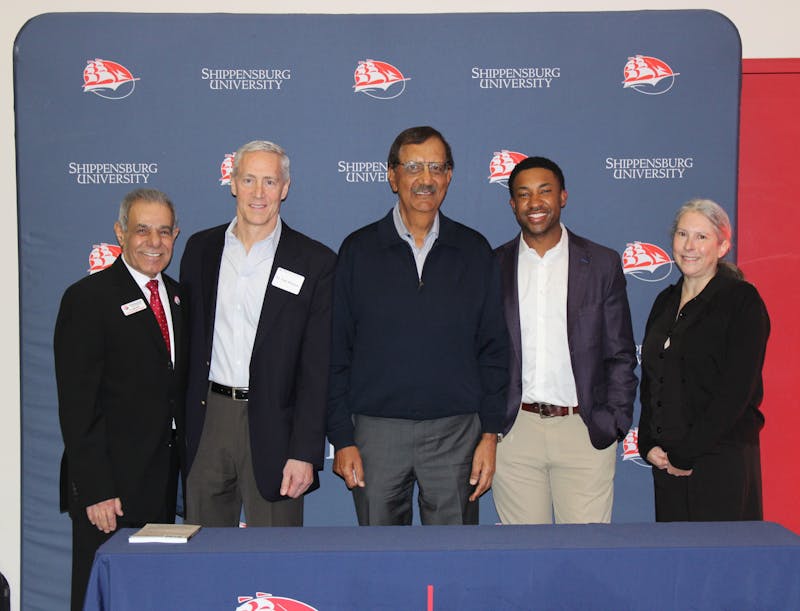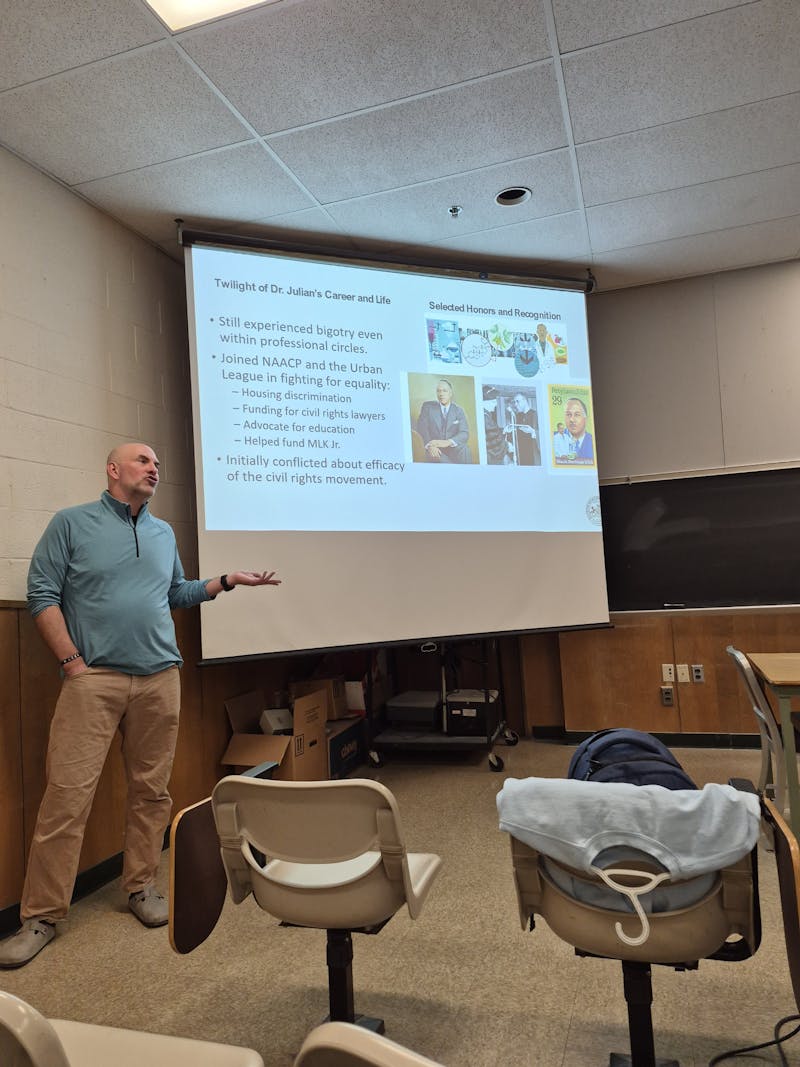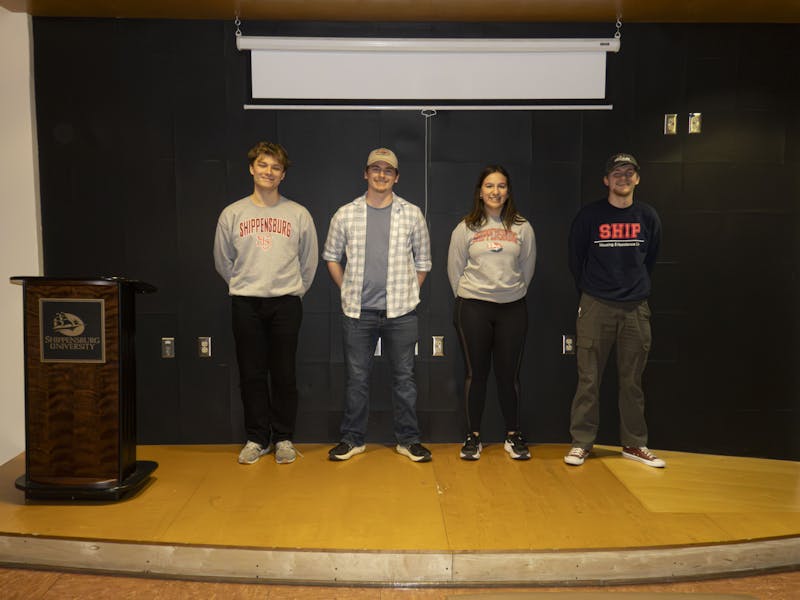Shippensburg University President Laurie Carter announced last week that she will depart the university this summer to take the president position at Lawrence University in Wisconsin.
As both Carter’s time and my own draw to a close at Shippensburg, we both find ourselves saying “goodbye” and moving on.
In regard to time, our journeys at SU have been pretty parallel. The class of 2021 and Carter both arrived on campus around the same time. Carter began her tenure as the university’s 17th president on Aug. 7, 2017, while a younger version of this editor-in-chief moved into Kieffer Hall later that same month. While our statuses on campus were polar opposites, we both found ourselves at a new place trying to be the best at our respective roles.
Our paths have personally crossed a number of times — Carter, her administration and policies have been frequent topics of articles, and officials have served as sources countless times. As a student-journalist, it is my job to be aware of what is going on at this university.
However, a major portion of our students do not seem to be as aware or involved. When the university holds town halls, informational meetings or events of importance to the community, student attendance is worryingly “consistent.”
Let me explain: When the Pennsylvania State System of Higher Education (PASSHE) Chancellor Daniel Greenstein visits — whether in-person or virtual — I can usually predict who I will see at the event. There are the faculty and staff members who always attend to ask questions and voice concerns. Carter, Provost Tom Ormond and other members of the executive management team will also attend, usually sitting in the first few rows. And interspersed in the rest of the gallery will be a small number of students (compared to the campus population).
There is a pretty good chance that I will see the student trustee, Student Government Association (SGA) president and a handful of senators, another campus media reporter or two and on average between 5 and 10 other students, of whom I do not recognize. I am happy to report that some of these events have had increased attendance since COVID-19 forced everything online.
It is good that these consistent students are committed to our university community. However, there needs to be more student body participation.
Since Carter’s announcement, I have found myself reading through old Slate editions about the 2017 presidential search. A Slate Speaks titled, “Presidential search schedule, process leaves students in dark about candidates,” in the May 2, 2017 edition discusses the lack of administrative outreach to students and poor scheduling of “meet-and-greet the candidate” events.
The points made in this opinion piece by the spring 2017 Slate staff are still applicable today. The editorial notes the lack of student attendance at the presidential search events. Oftentimes students will receive an email stating when an event will occur, but other information does not always seem abundantly available. The staff editorial also discusses scheduling of these types of events. In the case of the 2017 presidential search, officials scheduled the events during the middle of the day when most students and faculty are in classes and unable to attend. Yesterday’s chancellor town hall was held from noon-1:30 p.m.
As we enter into this new presidential search, the class of 2020 was the last collective group of students who went through the process. Faculty and other administrators may remember, but this group of students have not undergone the process. We have to remember that students are the reason that we are all here. Students must be a part of the process and must make efforts to attend these events.
In the same vein, SU officials and potential candidates must also make every effort to make events as accessible and interactive as possible. Instead of holding an hour-long, lecture-style informational session in the Old Main Chapel, bring the candidates to the Ceddia Union Building (CUB) where there are more students. Officials should send more than one email about the event and find other mediums to get the word out. We have to find a way to get more involvement.
This can be achieved by hosting organic events with the candidates rather than a ridged lecture and short question-and-answer session. Our campus community is so much more than what we can fit into one afternoon. The next president will have the responsibility of leading the university into the post-pandemic landscape. Students must take part in the process of choosing the person who will create their future.




The Slate welcomes thoughtful discussion on all of our stories, but please keep comments civil and on-topic. Read our full guidelines here.